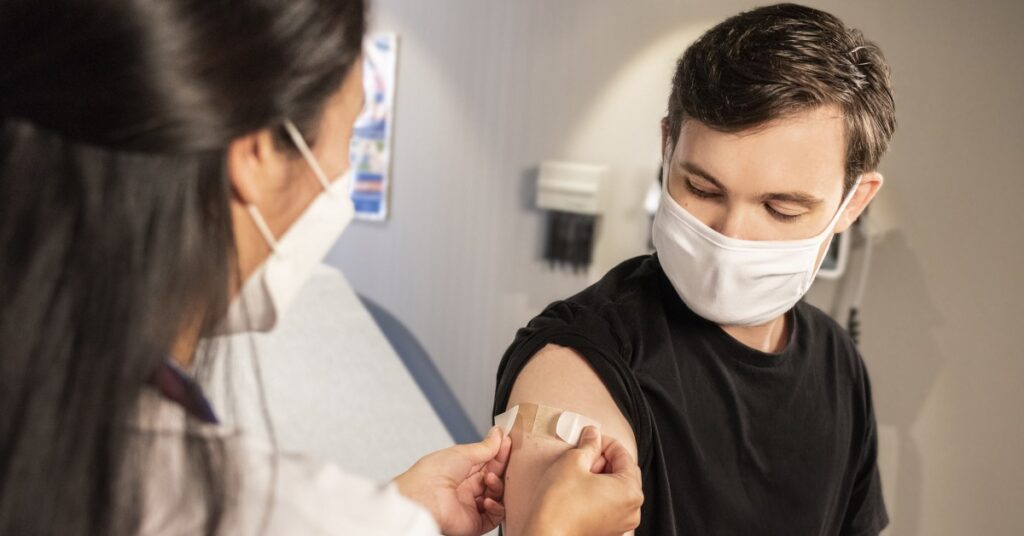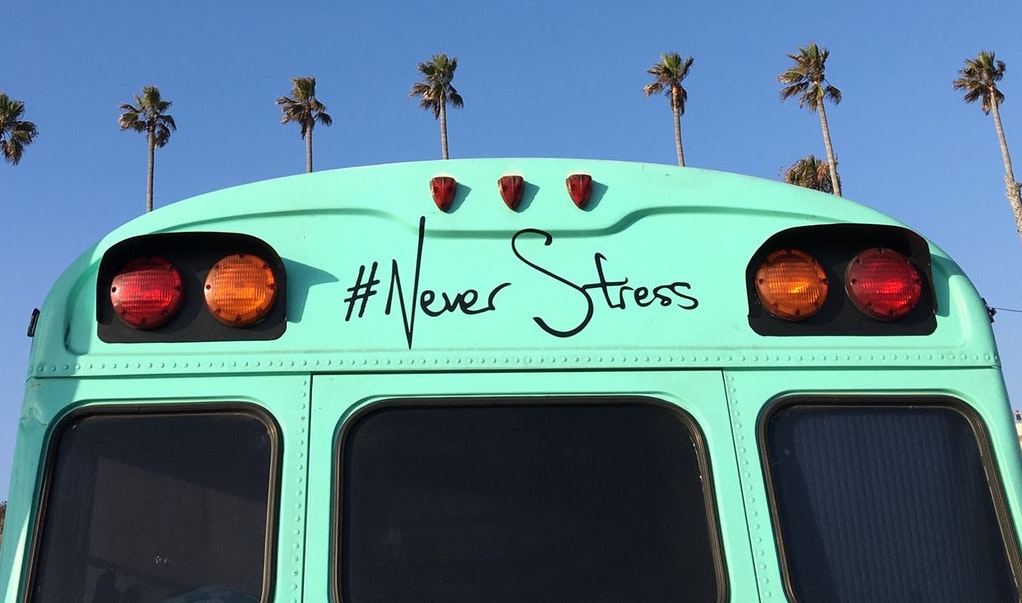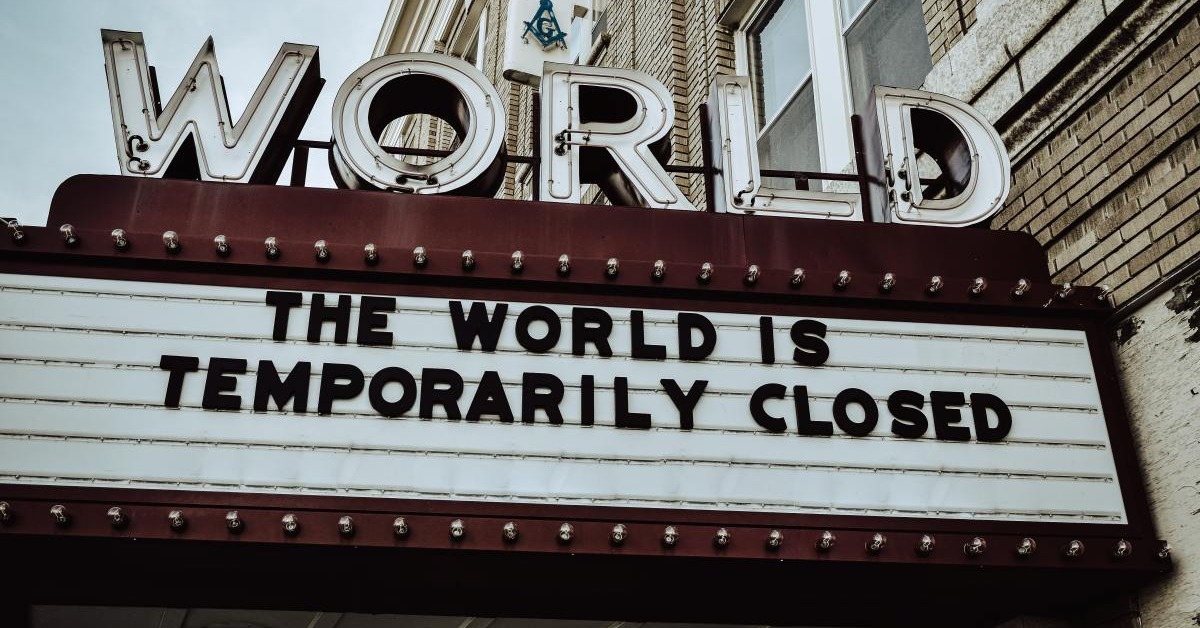
How to Become a Hospital Social Worker
Not everyone in a hospital wears scrubs. Some, like hospital [...]

The COVID-19 global health epidemic has impacted populations on economic, psychiatric, emotional, and, of course, personal health fronts. Those affected required services from a variety of professionals.
The pandemic focused an especially bright spotlight on public health officials, who became a primary source of policy and information on the disease’s spread and measures to combat it. They provided real-time resources on COVID-19 safety measures, including proper hygiene practices, masking, and vaccination.
Social workers, too, delivered essential services. The pandemic exerted social stressors that manifested as mental health and behavioral health challenges, including substance abuse and an increase in the suicide rate. Social workers served the populations while also advocating for resources and policies to reduce health disparities, especially for vulnerable populations.
Although public health officials and social workers operate in different fields, their duties overlap in many ways. In many instances, the two collaborate. Expertise in both public health and social work can qualify professionals for impactful roles that straddle the disciplines.
A Master of Public Health (MPH) and Master of Social Work (MSW) dual degree combines skill sets and experience that helped these professionals perform critical functions throughout the pandemic. Social workers benefited from public health knowledge during the pandemic to assist their clients at the micro (individualized focus), mezzo (group or community focus), and macro (population or societal focus) levels by enabling them to:
That’s just the tip of the iceberg. These highly trained experts have a unique skill set that serves society at all times, not just during public health crises. For example, public health and social workers also assist with disaster relief, helping communities rebuild through city resilience, crisis intervention, and advocacy for equitable resources.
Although a dual degree may seem like a heavy lift, many perks derive from the wide-ranging skill set and experience this academic track produces. This article addresses the question why get an MSW and an MPH dual degree? It also discusses what schools offer a dual degree MSW/MPH, the time commitment, and whether you can pursue this degree online.
An MSW/MPH dual degree program confers many unique and valuable career skills in an essential, fast-growing profession. This article lists some of the most compelling reasons to pursue this dual degree, including interdisciplinary training, community-based work, field education, job outlook, and time commitment.
Michael A. Lindsey, PhD, MSW, MPH, explains in a Social Work Today that article, “a joint degree provides students with the ability to fuse two different perspectives and contextualize social work in the broader public health sphere.” Social work and public health share a long-standing collaboration; many subdisciplines of the social work practice overlap with healthcare (including behavioral health, health administration, policy, advocacy, and prevention and health promotion).
The integrated approach of public health and social work is:
Joint degree students can expect coursework from the social work perspective related to clinical practice, crisis intervention, human behavior, program planning, and social welfare. Coursework from the public health perspective may cover biostatistics, community health sciences, epidemiology, and health policy and administration.
Public health professionals employ a prevention approach backed by research at the community level. Social workers take more of an intervention approach at the individual level. Blending these two philosophies bridges the gap between research and clinical practice to improve outcomes. Social workers operate within three intervention levels:
Case workers commonly intervene at the micro-level, working directly with individuals and families to deliver social services and provide access to equitable resources. Because social workers typically serve underserved or disadvantaged populations, social justice and equity issues often figure prominently in their work. Their interventions impact public health on a case-by-case basis.
Social work and public health responsibilities overlap more significantly at the macro level, where social workers advocate on behalf of populations and get to the root of societal issues. They employ a risk-reduction and prevention approach, using public health research and reform to address disparities in healthcare, disaster relief, environmental health, disease control and prevention, and other institutional-level concerns.
A field practicum or field education equips MSW/MPH students with real-world experience and hands-on training to gain the essential skills to excel. Students use field education opportunities to apply classroom instruction in a professional, supervised setting.
Consider the MSW/MPH program at Tulane University’s School of Social Work (SSW) and School of Public Health and Tropical Medicine (SPHTM), which offers flexibility for on-campus and online students to complete their field education requirements. On-campus students work with community agencies in the New Orleans area. Online students fulfill their field education at social service agencies, schools, hospitals, businesses, and government entities throughout the country. Tulane students must complete a minimum of 900 supervised hours of field education during the program.
The MSW/MPH program at the University of California Berkeley‘s School of Social Welfare offers two types of field placement opportunities for students in their first and second years. The first year covers generalist duties, building client experience within varied populations and intervention levels. During the second year, students select more advanced or specialized placements to focus on their concentration areas while taking elective coursework to complement their field education.
Obtaining a dual degree in social work and public health provides MSW/MPH graduates with increased flexibility in career opportunities. Skill sets in both areas qualifies you for any job requiring the skills of one. Of greater interest, likely, are positions that require or prefer a combination of skills from the two fields.
According to the U.S. Bureau of Labor Statistics, healthcare social workers and mental health and substance abuse social workers are in high demand. The job market for these professionals is projected to grow at an 11 percent rate between 2021 and 2031.
Dual-degree holders commonly work in hospitals, public health, social service, or community agencies, utilizing administrative, policy development, research, leadership, and direct social service skills. Possible career paths include:
If you’re looking for versatility and marketability in a growing field, an MSW/MPH degree equips students with a balanced curriculum between the two subjects to gain the necessary competencies and experience.
| University and Program Name | Learn More |
|
Virginia Commonwealth University:
Online Master of Social Work
|
The first MSW/MPH dual degree program launched in the early 1980s. Currently, more than 25 programs offer this option. They include:
An MPH program and an MSW program could take four years to earn if pursued consecutively. However, an MSW/MPH dual degree can shave off one year, reducing both the time commitment and cost. In addition, some schools, such as the University of Georgia, offer an advanced standing program that can take as little as two years of full-time study. While the fast-track option may work for some students, others may opt for the part-time route, which can stretch to four years and, in some cases, more.
Programs vary in many ways, from the number of credit hours required to whether programs offer hybrid or online options. Schools offering flexible options include:
Most MSW/MPH programs require two separate applications to their School of Social Work and School of Public Health. Although not as common, some institutions have external partnerships, such as the Icahn School of Medicine at Mount Sinai and the Fordham University Graduate School of Social Service. In this joint program, students complete select courses at each school. They must first gain admission to both schools to qualify for the dual degree.
Questions or feedback? Email editor@noodle.com

Not everyone in a hospital wears scrubs. Some, like hospital [...]

Social workers on a job search should include strong professional [...]

Social work is among the most stressful professions, experts agree. [...]

You can enroll in a joint degree or dual degree [...]

Frontline care workers confronted extreme conditions and heavy caseloads during [...]
Categorized as: Public Health, Social Work, Social Work & Counseling & Psychology